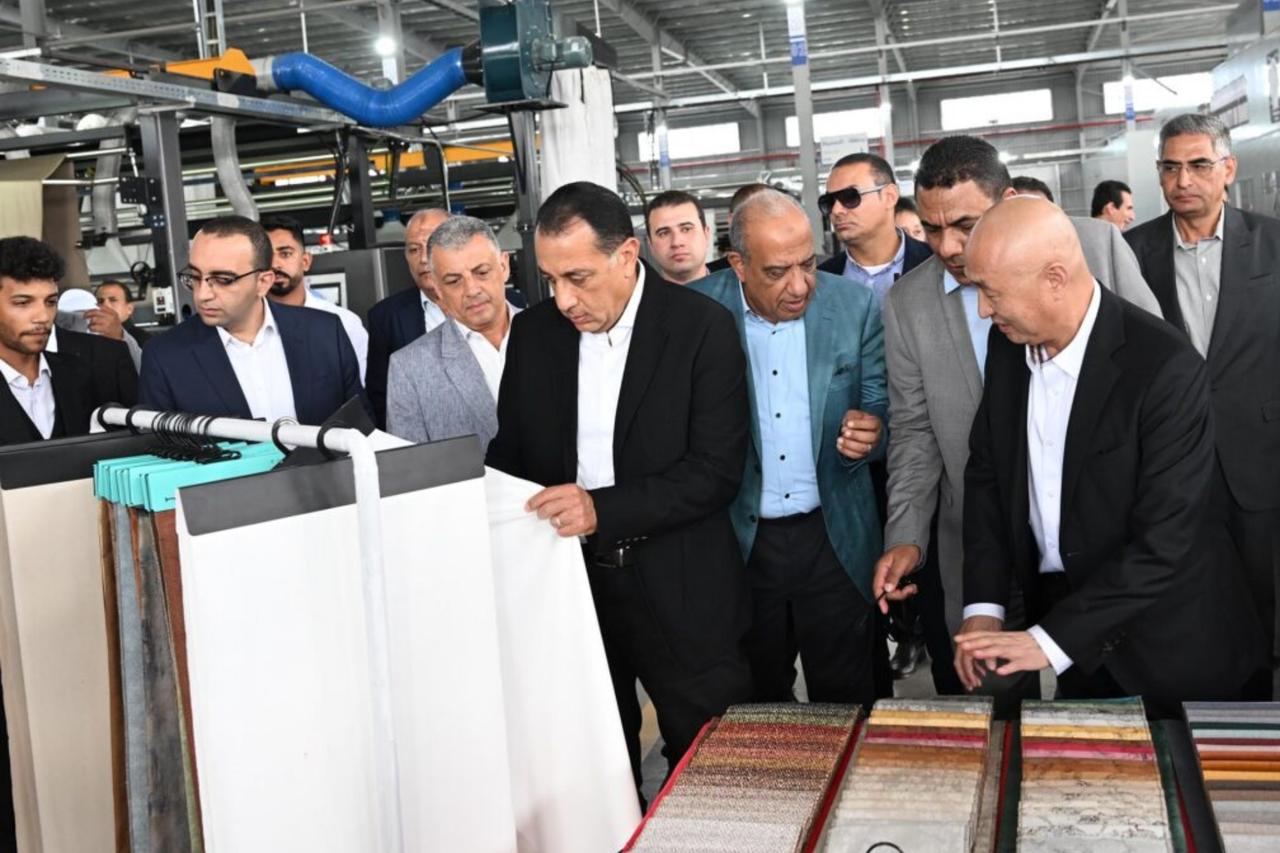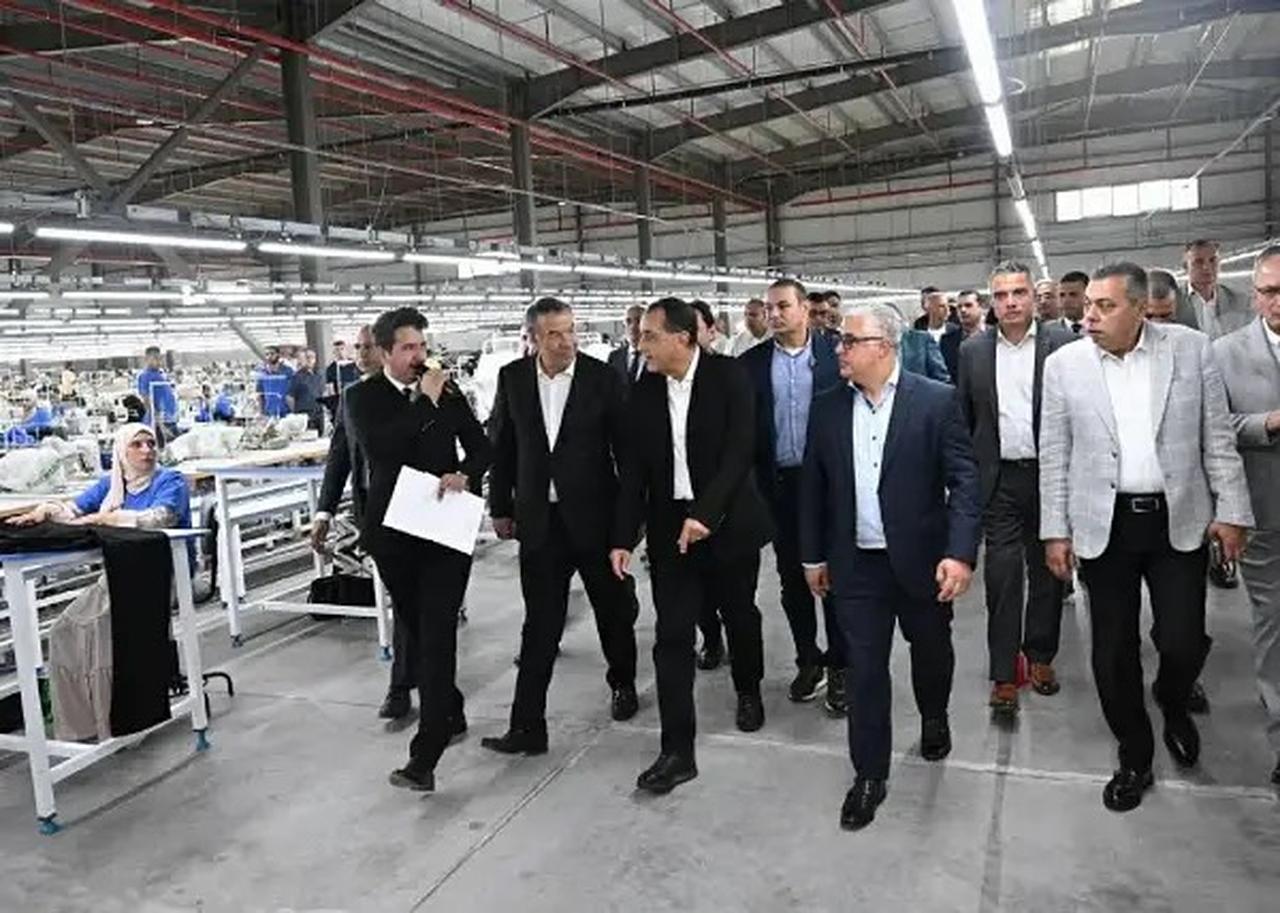
Egypt inaugurated a series of industrial projects in the Suez Canal Economic Zone (SCZone) on Saturday, including textile investments totaling $110 million from Türkiye’s Eroglu Global Holding and China’s Hengsheng Textile Technology.
The ceremony was attended by Egyptian Prime Minister Mostafa Madbouly, Eroglu Chairman Nurettin Eroglu, and Hengsheng Chairperson Chen Songfu.
One of the headline projects is Hengsheng (Egypt) Textile Technology, a Chinese-owned factory specializing in printing, dyeing, and garment production. The facility, located in the West Qantara industrial area northeast of Cairo, carries a total investment of $70 million and spans 200,000 square meters.
Construction is being completed in two phases, with the first phase already operational. Once fully completed, the factory is expected to provide about 1,300 direct jobs. Chen Songfu said the company is committed to using environmentally friendly technologies to produce high-quality textiles that support Egypt’s long-term industrial strategy.

The other major project inaugurated is the Eroglu Garment factory, a subsidiary of Türkiye’s Eroglu Global Holding. Built on 64,000 square meters, the facility represents an investment of $40 million and will employ 2,750 workers.
Eroglu Holding has been active in Egypt since 2007, with earlier projects in Ismailia and Damietta. The company’s overall investments in the country have grown from $150 million to $450 million, while its workforce has expanded from 2,500 to 10,000 employees.
Nurettin Eroglu said the new project in Qantara West continues the group’s long-term commitment to Egypt’s textile and garment industry.
The Suez Canal Economic Zone was established in 2015 to attract foreign investment and boost exports. Covering 461 square kilometers, it includes six ports and four development areas. The West Qantara zone, where both factories are located, spans 19 square kilometers and is designed as a hub for labor-intensive industries and logistics, taking advantage of its position between the Mediterranean and Red Sea trade routes.
According to government data, the zone has already drawn investment from seven countries — including Türkiye, China, Germany, Greece, Pakistan, and Thailand — valued at more than $1 billion. Current projects employ nearly 55,600 people.
Prime Minister Madbouly said the new facilities reflect Egypt’s broader strategy to strengthen domestic manufacturing, expand exports, and create thousands of direct and indirect jobs.